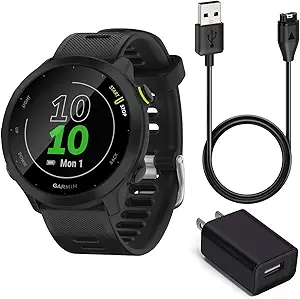What Are the Best Wearable Fitness Trackers of 2025?
April 30, 2025 | by michaelthandiwe40@gmail.com
What Are the Best Wearable Fitness Trackers of 2025?
Introduction
In today’s fast‑paced world, maintaining a healthy lifestyle is more than just a trend—it’s a necessity. Wearable technology has revolutionized how people monitor their well‑being, track physical activity, and even optimize daily performance. If you’ve been searching for the Best Wearable Fitness Trackers of 2025, you’ve come to the right place.
In this comprehensive review, we dive into the most innovative devices on the market, exploring features that range from advanced heart-rate monitoring and precise sleep tracking to built‑in GPS and beyond. Whether you’re a dedicated athlete or just starting your fitness journey, our guide will help you find the tracker that offers the perfect combination of design, functionality, and value.
The Rise of Wearable Fitness Technology
Wearable fitness trackers are more than stepping counters—they’re personal health assistants on your wrist (or even your finger!). As technology advances, these devices now offer an impressive suite of features designed to provide deeper insights into your body and lifestyle. In 2025, they’re not only fashionable but are also engineered for precision. Here’s why investing in one of the Best Wearable Fitness Trackers of 2025 can be a game‑changer:
- Accurate Health Monitoring: From heart-rate analysis to sleep quality and even oxygen saturation, advanced sensors offer real‑time health data.
- Enhanced Connectivity: Seamless integration with your smartphone ensures that your health data is always at your fingertips.
- Motivation and Goal‑Tracking: Personalized insights and real‑time feedback help you set and achieve your fitness goals.
- Battery and Durability: Improved battery life and rugged designs make these trackers perfect for both daily use and challenging workouts.
As the appetite for healthy living grows, these devices continue to evolve, bringing professional‑grade tracking to the consumer market.
Top 5 Best Wearable Fitness Trackers of 2025
After months of thorough research and analysis, we’ve identified five top contenders that have earned their title as the Best Wearable Fitness Trackers of 2025. Each offers unique strengths based on target users, performance metrics, and overall design.
1. Fitbit Charge 6 – Best Overall
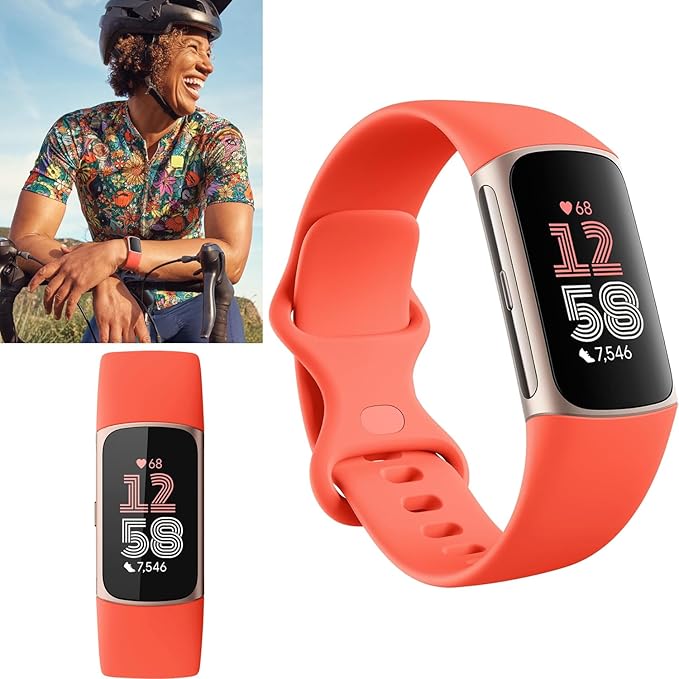
Highlights:
- Accurate Health Tracking: Featuring robust heart rate monitoring, real‑time activity tracking, and a detailed sleep analysis, the Charge 6 is designed to help you understand your body better.
- Long Battery Life: With up to seven days of battery life, you can confidently leave your device charging overnight.
- Extensive App Integration: Compatible with both Android and iOS, it integrates well with popular fitness apps and even supports Google Maps and Wallet functions.
Pros:
- Accurate sensors and robust activity tracking
- User‑friendly interface
- Affordable price range
Cons:
- Lacks some of the advanced smartwatch features seen in premium models
- $159.90
2. Apple Watch Series 10 – Best for iPhone Users
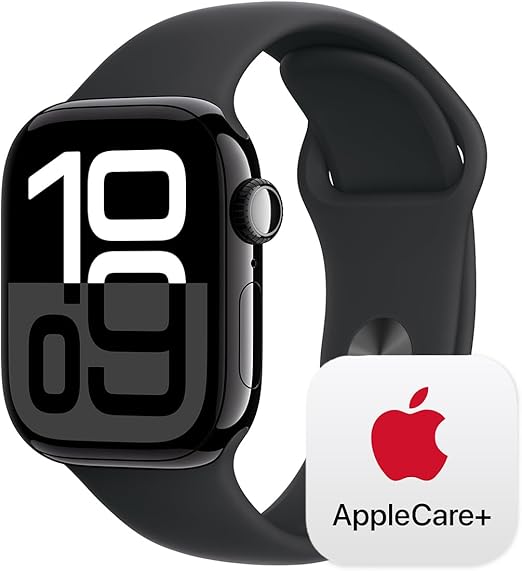
Highlights:
- Seamless Ecosystem Integration: If you’re entrenched in the Apple ecosystem, the Series 10 is your go-to device, with smooth pairing across your iPhone, iPad, and Mac.
- Advanced Health Metrics: With ECG monitoring, blood oxygen tracking, and an impeccably designed fitness interface, it sets a high standard for health tracking.
- Stylish and Customizable: Designed for both work and workouts, its premium design ensures you don’t sacrifice style for functionality.
Pros:
- Cutting‑edge health tracking features including ECG
- Excellent for iOS users
- Elegant design with customizable bands
Cons:
- Comes with a higher price tag compared to many fitness trackers
- $468.00
3. Garmin Venu 3 – Best for Athletes
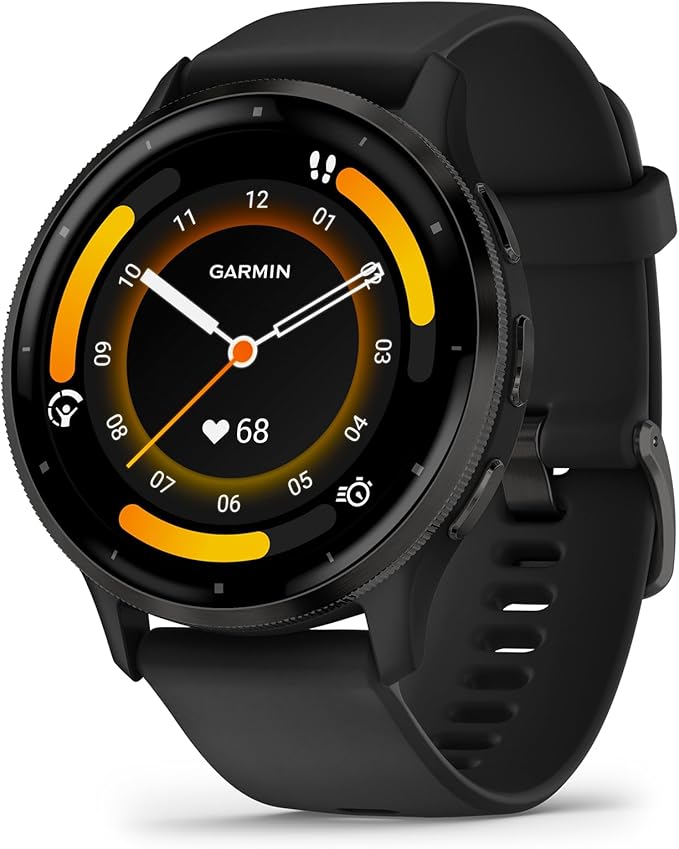
Highlights:
- Detailed Performance Tracking: Built with athletes in mind, the Garmin Venu 3 offers in-depth metrics such as recovery insights and advanced workout analytics.
- Built‑in Training Programs: Whether you’re a runner, cyclist, or gym enthusiast, this tracker provides personalized training plans to optimize your performance.
- Exceptional Battery Life: With up to 10 days of battery life on a single charge, it’s built to last through lengthy outdoor adventures.
Pros:
- Advanced tracking for various sports and activities
- Comprehensive wellness monitoring
- Long battery longevity
Cons:
- The premium feature set comes with a higher price point
- $439.00
4. Samsung Galaxy Watch FE – Best for Android Users
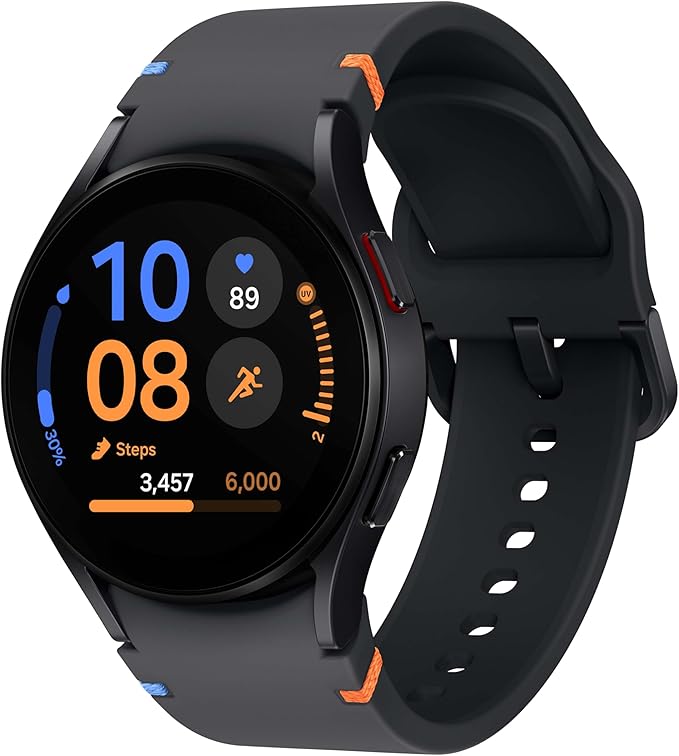
Highlights:
- Budget‑Friendly Innovation: Samsung’s Galaxy Watch FE offers an excellent balance of features and affordability without compromising reliability.
- Health Insights: It tracks body fat, snoring, and offers traditional health metrics like heart rate and sleep quality.
- User‑Friendly Interface: The intuitive design makes it easy for Android users to navigate, and it also boasts stylish aesthetics.
Pros:
- Affordable and feature‑rich
- Strong emphasis on health tracking
- Attractive design
Cons:
- Battery life is decent but does not match some of the top competitors
- $159.00
5. Oura Ring 4 – Best Smart Ring Alternative
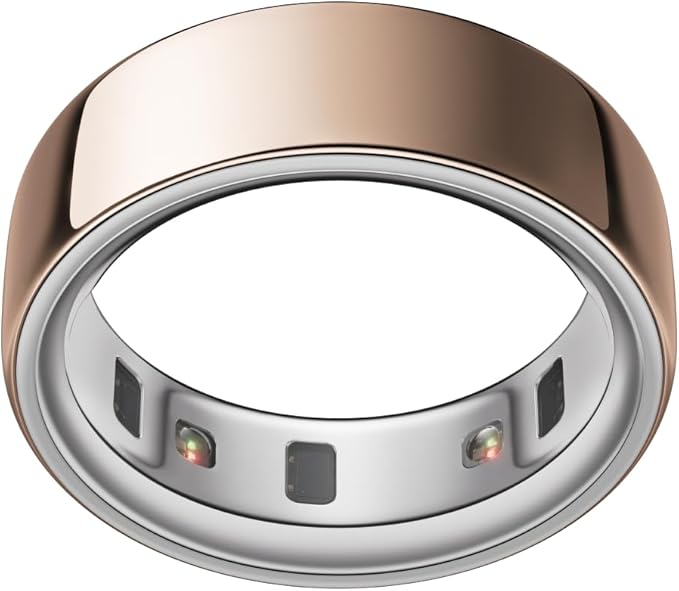
Highlights:
- Discreet and Innovative: The Oura Ring 4 rethinks wearable technology with a compact design that fits on your finger, yet doesn’t compromise on advanced tracking features.
- Exceptional Sleep and Recovery Insights: It’s particularly popular among those interested in detailed sleep analytics and recovery metrics.
- Extended Battery Life: Despite its small form factor, the ring offers robust battery performance over several days.
Pros:
- Discreet design with advanced sleep tracking
- Comprehensive recovery tracking
- Excellent battery life for a ring device
Cons:
- Lacks a display for real‑time feedback
- May not provide immediate workout stats compared to wrist‑wear device
- $499.00
Comparison Table: Best Wearable Fitness Trackers of 2025
To help you quickly compare these top devices, here’s a side‑by‑side table highlighting key features and performance metrics:
| Feature | Fitbit Charge 6 | Apple Watch Series 10 | Garmin Venu 3 | Samsung Galaxy Watch FE | Oura Ring 4 |
|---|---|---|---|---|---|
| Best For | General Fitness | iPhone Users | Athletes & Runners | Android Users | Sleep & Recovery |
| Heart Rate Monitoring | ✓ | ✓ | ✓ | ✓ | ✓ |
| Sleep Tracking | ✓ | ✓ | ✓ | ✓ | Advanced |
| ECG Feature | – | ✓ | ✓ | – | – |
| GPS Tracking | ✓ | ✓ | ✓ | ✓ | – |
| Battery Life | Up to 7 Days | Approximately 18 Hours | Up to 10 Days | Up to 3 Days | Up to 7 Days |
| Compatibility | Android & iOS | iOS Only | Android & iOS | Android (with some iOS support) | Android & iOS (via app) |
| Price Range | $159.90 | $468.00 | $439.00 | $159.00 | $499.00 |
Note: Symbols such as “✓” indicate the presence of the feature, and “–” indicates that the feature is not available on that device.
In‑Depth Analysis: What Sets These Trackers Apart?
When considering the Best Wearable Fitness Trackers of 2025, it’s important to delve deeper than mere specifications. Here’s a closer look at what factors can help you choose the right device for your needs:
Advanced Sensor Technology
One of the most significant advancements in these 2025 models is the improved sensor accuracy. For instance:
- Heart Rate and Blood Oxygen: All top trackers now provide almost clinical‑grade accuracy in monitoring heart rhythms and blood oxygen levels. This is particularly beneficial for those with underlying cardiac concerns or those who desire a higher resolution understanding of their fitness levels.
- ECG Monitoring: Featured in premium models such as the Apple Watch Series 10 and Garmin Venu 3, ECG monitoring can offer critical insights into heart health. This function, historically reserved for medical devices, is increasingly integrated into consumer wearables.
Design and Durability
How a device feels on your wrist—or even your finger—matters as much as its functionality. The design of 2025’s best fitness trackers is focused on comfort, style, and durability:
- Ergonomics: Many trackers now boast hypoallergenic materials, ensuring that long‑term wear does not irritate the skin.
- Water‑Resistance: Whether you’re caught in the rain or you like swimming as part of your fitness routine, water‑resistance is a key feature in a modern tracker.
- Customization: With customizable watch faces, interchangeable bands, and varied form factors (including the niche appeal of a smart ring like the Oura Ring 4), users can tailor their wearable to their personal style.
User Interface and Ecosystem Integration
A seamless user experience is non‑negotiable in 2025. Devices like the Apple Watch Series 10 are praised for their intuitive user interface and seamless integration with the rest of the Apple ecosystem, which enhances the overall experience for iPhone users. Similarly, the Fitbit Charge 6 and Garmin Venu 3 are designed with a minimal learning curve, so even new users can quickly tap into their wealth of features.
Battery Life and Usability
Battery longevity can dramatically impact how useful a tracker is in your day‑to‑day life. While some devices like the Garmin Venu 3 can offer a full 10 days of battery life, others may require more frequent charging. Knowing your usage pattern is key to selecting a tracker that aligns with your lifestyle. For instance, if you prefer not to charge your device frequently, a tracker with longer battery life—such as the Fitbit or Oura Ring—might be more suitable.
Factors to Consider When Choosing a Fitness Tracker
Before you make your purchase, evaluate these essential criteria:
- Compatibility: Ensure the tracker works with your smartphone system. Some devices excel within specific ecosystems like iOS or Android.
- Key Features: Evaluate what health metrics are most important to you—be it advanced sleep analytics, real‑time heart rate, or even ECG monitoring.
- Design and Comfort: Since you’ll likely wear it all day, choose one that feels comfortable and suits your style.
- Battery Life: Consider the trade‑off between features and battery longevity—some devices offer a surplus of features at the cost of shorter battery life.
- Price: Balance your budget with your desired features. Not every user needs a premium device; often, mid‑range gadgets offer a perfect blend of features and affordability.
Choosing the best tracker isn’t just about the specs—it’s about how well it integrates with your lifestyle. After all, a tracker that sits well and fits seamlessly into your daily routine is one that will ensure you consistently meet your fitness goals.
User Reviews and Expert Recommendations
Numerous experts, including leading tech websites and personal trainers, have weighed in on the wearables market. Reviews by publications like PCMag and Forbes have repeatedly mentioned that devices such as the Garmin Venu 3 stand out as top contenders due to their deep analytics and robust training tools.
Many users have shared personal stories of how simpler models like the Fitbit Charge 6 help them stay motivated and make significant health improvements. Expert recommendations stress that while premium devices may offer a wider array of features, the Best Wearable Fitness Trackers of 2025 are all about striking the right balance between convenience, accuracy, and affordability.
For example, many fitness enthusiasts appreciate the detailed insights provided by the Garmin Venu 3 during high‑intensity workouts, while casual users have found great success in simply monitoring their daily steps and sleep patterns via the Fitbit Charge 6. Similarly, the elegant integration of the Apple Watch Series 10 into the Apple ecosystem has turned it into a favorite for iPhone users looking for a stylish and capable fitness tracker.
Future Trends in Wearable Fitness Technology
Looking ahead, the evolution of wearable fitness technology is sure to accelerate. Here are some trends to keep an eye on:
- Deeper Health Analytics: With ongoing advancements in sensor technology and data analysis, future wearables may offer insights that were once the domain of medical professionals. Imagine advanced metabolic tracking or even early-warning systems for chronic conditions based on real‑time data.
- Integration of Artificial Intelligence: AI is expected to take wearable technology to the next level. Future devices could provide personalized workout suggestions and nutrition plans based on your unique physiology and activity patterns.
- Enhanced Connectivity: The next generation of wearables will likely feature even more seamless integrations with smart home devices and digital assistants, creating a truly connected ecosystem.
- Miniaturization and Design Innovation: As technology continues to evolve, wearables will become even more discreet—a trend already seen with products like the Oura Ring 4—allowing users to enjoy comprehensive health tracking without the bulk of a traditional smartwatch.
In‑Depth Conclusion: The Right Tracker for Your Life
After exploring the latest innovations and detailed reviews of the Best Wearable Fitness Trackers of 2025, it becomes clear that there is no one‑size‑fits‑all solution. Instead, the perfect tracker is one that aligns with your personal goals, daily habits, and even your aesthetic preferences.
- For the Everyday Fitness Enthusiast:
If you’re looking for a balance between advanced tracking and ease of use, the Fitbit Charge 6 is an exceptional choice. With its robust activity tracking, comfortable design, and extended battery life, it’s an excellent companion for people embarking on a healthier lifestyle. - For the Devoted iPhone User:
The Apple Watch Series 10 is specifically engineered for those who desire both style and unmatched functionality. Its advanced health monitoring features—such as ECG and blood oxygen tracking—coupled with seamless integration into the Apple ecosystem, make it the ideal pick if you lead a tech‑forward life. - For the Serious Athlete:
The Garmin Venu 3 stands out by offering detailed insights into recovery, performance, and even customizable training routines. Its longer battery life and dual‑sport focus make it indispensable for runners, cyclists, and outdoor enthusiasts who need accuracy and endurance from their tracker. - For the Budget‑Conscious Android User:
The Samsung Galaxy Watch FE packs powerful features, including body fat and snoring tracking, into an attractive and affordable device. It provides a solid alternative for those who don’t wish to splurge but still want comprehensive health monitoring. - For the Discerning Health Optimizer:
Finally, if you’re particularly interested in optimizing your sleep and recovery without the distraction of a large screen, the Oura Ring 4 offers an innovative and discreet design. It’s perfect for users who want detailed wellness insights in a compact and wearable format.
In essence, the Best Wearable Fitness Trackers of 2025 are more than just tech gadgets—they’re personalized fitness coaches that fit right on your wrist (or finger). They empower you with data, motivate you to push harder, and grant you insights once reserved for professional consultations. Whether your goal is to shed a few pounds, monitor your heart health, or simply maintain an active lifestyle, there is a perfect tracker waiting for you in this exciting era of wearable technology.
When planning your purchase, remember that every individual’s journey is unique. Consider your current fitness level, your long‑term goals, and even your fashion sense when choosing from these top contenders. The future of fitness is digital, and as these devices continue to improve with machine learning and sensor innovations, they will only get better at guiding you toward a healthier, more connected life.
Final Recommendations and Parting Thoughts
In our fast‑changing world, staying on top of your health is more achievable when you have the right tools at your disposal. The wearable fitness trackers we’ve reviewed not only deliver exceptional performance but also provide valuable insights that empower you to make better lifestyle choices. The coming years will undoubtedly introduce even more groundbreaking features, but for now, the models we discussed represent the pinnacle of what’s available.
Before making your final decision, consider taking advantage of trial periods or reading user reviews to see which tracker fits not only your physical needs but your lifestyle as well. As you explore the Best Wearable Fitness Trackers of 2025, keep in mind that the ultimate goal is a better connection with your body, greater motivation to exercise, and a measurable improvement in your overall wellness.
As wearable technology continues to bridge the gap between advanced health tracking and everyday fitness management, choosing the right device becomes a deeply personal decision. Trust your instincts, evaluate your needs, and invest in a tracker that will propel you towards your health goals—because every step you take is a step toward a healthier future.
Frequently Asked Questions
- What makes a fitness tracker “the best” in 2025?
The best trackers integrate advanced sensors, offer high‑resolution data, and maintain long battery life while ensuring maximum comfort and user satisfaction. They often come with robust ecosystems and features such as ECG monitoring, sleep tracking, and GPS mapping. - How often do these devices need to be charged?
Battery life varies: some, like the Garmin Venu 3, offer up to 10 days, while others like the Apple Watch Series 10 may require daily charging if used intensively. Consider your daily usage when choosing a tracker. - Are these devices suitable for beginners?
Absolutely. Models like the Fitbit Charge 6 are designed with intuitive interfaces that appeal to both beginners and experienced users. - Can I switch between devices or add multiple?
Many wearables support multi‑device synchronization via companion apps, allowing you to track data seamlessly across multiple platforms.
Final Words
As technology continues to advance at a rapid pace, the wearable fitness tracker you choose today could very well be a stepping stone in a long journey towards better health and wellness. The Best Wearable Fitness Trackers of 2025 not only exemplify technological innovation but also underscore the importance of self‑care in our digital age. Your fitness journey is personal, and equipping yourself with the right insights—and the right device—can make all the difference.
We hope this detailed guide empowers you with all the information you need to make an informed decision. Whether your focus is on cutting‑edge analytics from the Apple Watch Series 10 or the discreet sophistication of the Oura Ring 4, rest assured that your next fitness partner will be a catalyst for positive change.
Embrace the future of wearable technology and remember: every heartbeat, every step, and every moment of rest is one more metric toward understanding the most important project—you.
By exploring the features, benefits, and nuanced performance of each device, you now have a holistic view of the Best Wearable Fitness Trackers of 2025. Enjoy the journey to a healthier, more technologically empowered you. Welcome to the future of fitness.
If you enjoyed this review and want to dive deeper into the latest trends in wearable technology or need further guidance on setting fitness goals with your tracker, be sure to check out our upcoming posts on advanced health analytics and smart home integrations with fitness wearables.
Through this comprehensive guide, we not only presented a detailed comparison of the top trackers from Fitbit, Apple, Garmin, Samsung, and Oura but also provided the insights necessary to choose one that aligns perfectly with your lifestyle. Step into 2025 with confidence, knowing that the ideal wearable is there to fuel your passion for health and efficiency every single day.
By following these recommendations and insights, you’ll be well‑on‑your way to making an informed decision and enjoying the remarkable benefits that the Best Wearable Fitness Trackers of 2025 have to offer. Welcome to the new era of health and connectivity!
RELATED POSTS
View all

